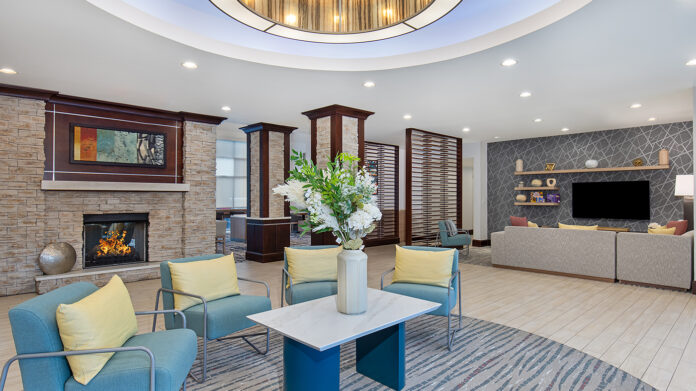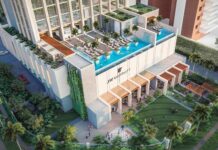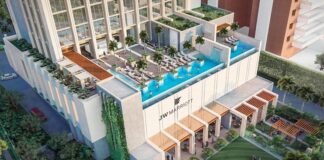When it comes to property improvement plans (PIPs), much of the focus of both brands and owners is on guest-facing areas, but investments in back-of-house areas can be just as costly, and critical, for hoteliers.
Charles Oswald, president/CEO, Aperture Hotels—a management firm with some 25 properties that managed some $19 million in PIPs last year alone—touted a data-driven approach when it comes to tracking and executing on improvements, particularly as it relates to back of house.
“We’re very data-driven in how we approach these things, so we’ll dive into our maintenance software, for example. This is where we track all of the guest issues, and we look for those recurring issues and patterns. We find out ‘this corner of the building in that stack has a recurrent plumbing issue or an HVAC problem or noise or whatever.’ We then can plan better based off of something we’ve tracked, and we can point to the owner and say, ‘We’ve had this many incidents.’ Now we have good data-driven decision-making evidence there to help make a good business decision,” he said.
But Oswald emphasized that while many companies are using data-driven systems and technology platforms, in his opinion some companies are not focusing on the right areas where some of the larger issues can occur.
“We’re taking over these properties from other management companies and even those who are using the system, really 90-plus percent of what they do is preventative maintenance in rooms. Furthermore, roughly 10 percent of them are tracking their guests’ comments, but almost nobody is tracking the commercial spaces and equipment,” he said.
As a third-party manager, providing owners with as much information and history on specific product within the hotel is critical, according to Oswald, who also stressed the importance of “asset preservation opportunities” when it comes to properties. As such, he noted Aperture leaves nothing to chance.
“We log every piece of equipment: furniture, fixtures, and equipment (FF&E), carpet, software, everything. We put the install dates in their system and the lifespan of certain things for CapEx planning purposes,” he said.
Acknowledging that PIPs “are always a negotiation,” Ashley Ewing Parrot, principal, AEP Consulting—a hospitality design firm created for boutique and lifestyle hotels—also spoke to the importance of back of house.
“It’s a huge priority and it’s a place that owners often don’t want to spend money,” she noted.
Todd Felsen, president/CEO, OTO Hotels & Resorts, meanwhile, emphasized the importance of hiring a trusted designer when it comes to brand-mandated PIPs as a means of controlling costs.
“We’re doing model rooms right now, and it’s so expensive. So really you rely a lot on your interior design firm to come up with a good clean look that matches the brand requirements, gets brand approval and keeps costs down,” he said.
While she noted that owners always need to be mindful of the guest experience, there are ways to keep costs down. She emphasized the little things that can be done to improve the guest experience, such as setting up an amenities station or taking ice machines and turning them into a water-filling station.
“That has plumbing implications and construction implications, but does it impact the guest experience in a positive way?” she asked. “If the answer is yes, then let’s get creative on how we implement it.”
She further suggested that if a particular brand is insisting on doing these stations on every floor, maybe the property can do it every other floor, or a larger one on the first floor as a means of compromise.
Ewing Parrot noted the company recently completed the renovation and repositioning of a roadside motel in Pigeon Forge, Tennessee, into The Wayback, Pigeon Forge, A Tribute Portfolio Hotel. “We took a very dated roadside hotel in Pigeon Forge and made a gem out of it,” she said.
Finally, Ewing Parrot emphasized the importance of labor as it relates to potential back-of-house improvements and suggested it could go a long way in employee retention.
“If we start investing in back-of-house spaces and we create a more hospitable environment for our associates, maybe they stick around a bit longer. So, when it comes to a PIP and that kind of improvement, I think infrastructure is vital,” she said.











